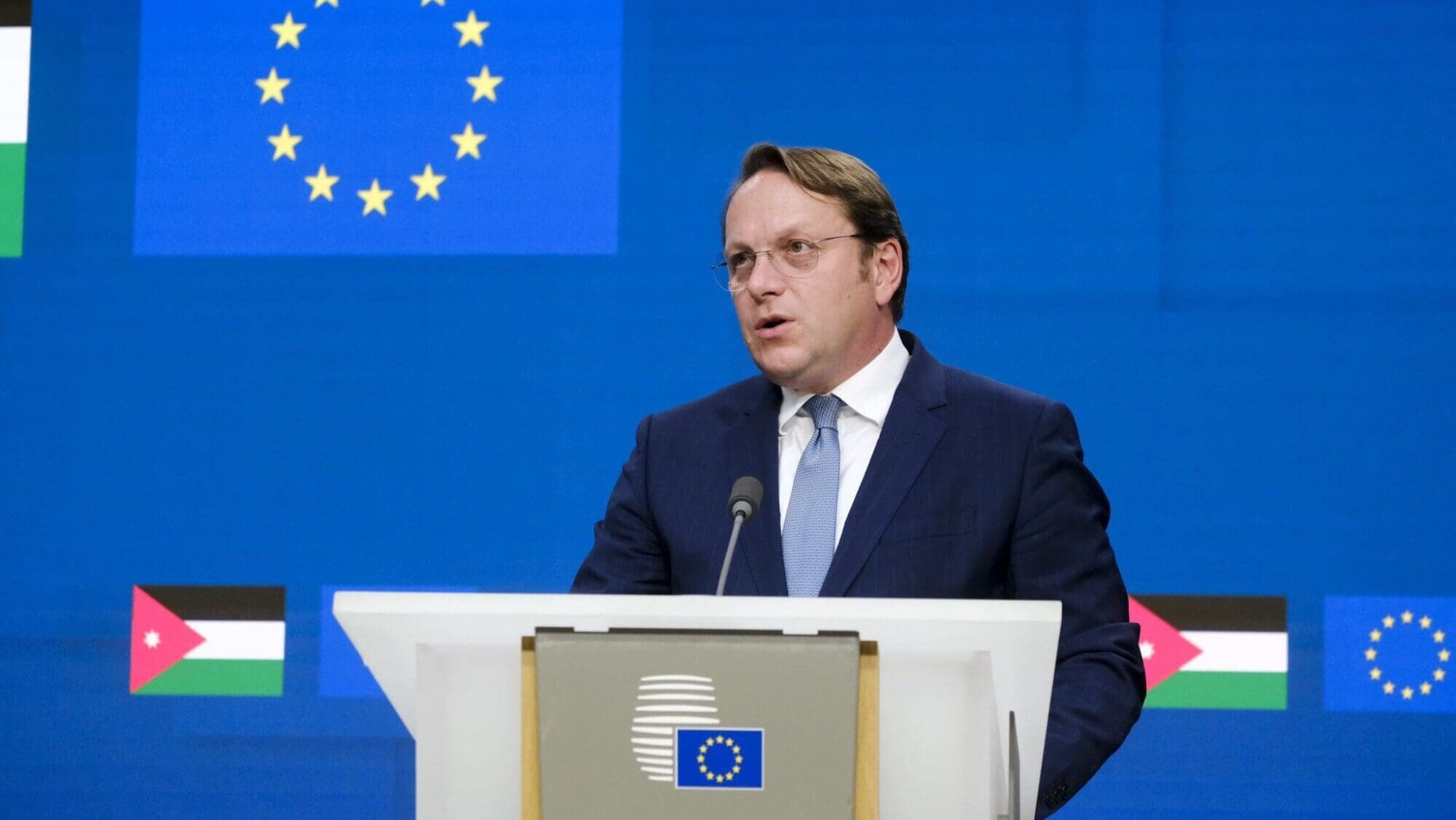
Olivér Várhelyi
Photo: @OliverVarhelyi on X, 15 July 2024
Hungarian Prime Minister Viktor Orbán has nominated Olivér Várhelyi for the job of Hungary’s European Commissioner. Várhelyi has been serving as the EU’s Enlargement Commissioner for the past five years, in which time he has strived for the bloc’s enlargement efforts to pick up pace. He has also been an anti-immigration and pro-Israel voice in Brussels—positions that make him a “controversial” figure, according to leftist media outlets, and thereby make it unlikely that he will be reelected as commissioner in Ursula von der Leyen’s team.
Viktor Orbán announced his pick on Monday, July 29th, saying that “during the past five years Commissioner Várhelyi has proved that the EU can make a difference as a positive force in its neighbourhood and beyond.”
Following my recent 📞 consultation with Commission President Ursula @vonderleyen, my nominee for the @EU_Commission is once again @OliverVarhelyi. During the past five years Commissioner Várhelyi has proved that the EU can make a difference as a positive force in its…
— Orbán Viktor (@PM_ViktorOrban) July 29, 2024
The European Commission is made up of 27 members, with each EU member state providing one commissioner. Member governments have until the end of August to submit their nominations, after which the commissioners will be assigned portfolios, and then are subject to hearings in the European Parliament which evaluates their suitability. If members of the team are found to be inappropriate, Ursula von der Leyen, the Commission president, must reshuffle the team or request a new candidate from the member state—or risk the whole Commission being voted down by the Parliament.
No matter whom Hungary chooses, the nomination will be seen as “controversial” by the Brussels establishment, seeing as the Viktor Orbán-led conservative government has pursued sovereigntist politics in the last fourteen years, going against the mainstream tide on many occasions. He has fought the EU on issues like migration and LGBT propaganda and, most recently, drew the ire of Western liberals by travelling to Moscow and Beijing in pursuit of a dialogue for peace to end the war in Ukraine. Brussels has punished Hungary under a ‘rule-of-law’ pretext, withholding billions of euros of EU funds.
Previous commissioner-nominees Tibor Navracsics (2014) and László Trócsányi (2019) were grilled at European Parliament hearings for their role in “undermining the rule of law” in Hungary. Navracsics had to endure two rounds of questioning, after being rejected following the first hearing, but eventually landed the education and culture portfolio. Trócsányi was rejected outright, although it was officially due to a possible conflict of interest in connection with his law firm.
His replacement was Olivér Várhelyi, whose every move as the European Commissioner for Neighbourhood and Enlargement has been scrutinised in the past five years.
Immense honour to be nominated and to be requested by the Prime Minister to continue to serve as the Hungarian member of the European Commission.
— Oliver Varhelyi (@OliverVarhelyi) July 29, 2024
Looking forward to continue our common work with President von der Leyen.@vonderleyen @EU_Commission #Hungary https://t.co/nziQVTi5Lt
Várhelyi has been keen on accelerating EU accession talks with candidate countries such as Serbia and Montenegro. Hungary has long maintained that the integration of the Western Balkans region, which lies in close proximity to Hungary, is key for anti-migration policies and the security of the EU’s southern and eastern borders. As Várhelyi told The European Conservative in an interview earlier this year:
The previous Commission missed a major opportunity not only to bring the Western Balkans in, but specifically, it has declined to engage in any way with the Western Balkans to get them in. We have seen five years of telling them we don’t want them. Leaving a five-year gap has a major impact, also on their level of political motivation and belief that the EU means business.
During Várhelyi’s term, the EU started accession negotiations with Albania and North Macedonia, two countries that had been waiting to do so for many years, and Bosnia and Herzegovina received EU candidate status in 2022. The commissioner’s efforts were met with accusations by the Brussels elite that Várhelyi was playing down ‘rule-of-law’ violations in Serbia and supporting Serbian separatist manoeuvres in Bosnia—accusations vehemently rejected by Várhelyi.
He was also lambasted for announcing the suspension of nearly €700 million in aid for Palestine following the Palestinian terror group Hamas’ attack on Israel last October. The Commission backtracked on Várhelyi’s statements and the majority of member states vowed to continue funding Gaza, despite serious questions arising about whether EU taxpayers were actually funding terrorism.
Várhelyi was also criticised for calling some MEPs “idiots” during a parliamentary debate when he thought his microphone had been turned off. The commissioner said it was a misunderstanding, and that his use of the term related to a different matter.
In alignment with leftist mainstream politicians, left-wing media outlet Euronews deemed Várhelyi’s moves and statements as “controversial.” Another Brussels mouthpiece, Politico wrote that “the pick will be viewed as contentious in Brussels.”
Meanwhile, government-critical Hungarian media reported that Orbán is already speculating that Várhelyi will be turned down in the European Parliament, and that the prime minister’s real choice for commissioner is MEP Enikő Győri, who would then replace Várhelyi.
Whether Várhelyi will indeed be voted down and replaced remains to be seen, but both he or Győri will be facing a hostile crowd in Brussels for the simple fact of being Hungarian.
